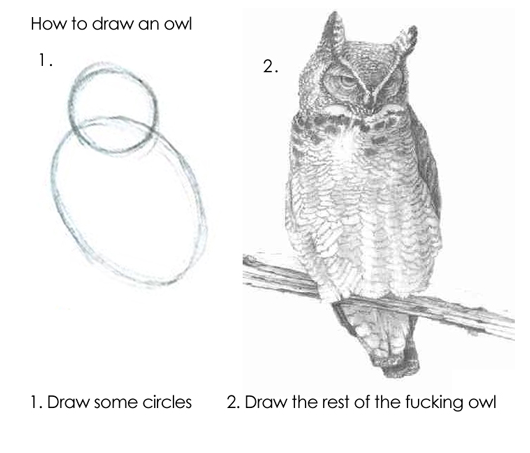How to write a philosophy essay
I’m almost halfway through a philosophy degree with the Open University and I feel like I have got the hang of writing philosophy essays. The actual content is still difficult to write but the boring details about structure etc are the same in every essay. Get the structure right and you are halfway there and can focus on the content.

Some tips:
Introduction
Write the introduction first. It will get you started and saves you from the agony of staring at a blank page for hours. Once you have decided on the argument you want to make, the introduction will write itself.
It will usually be something like this:
Philosopher X described how XXX. In this essay, I will begin by explaining XXX then describe what X claimed about XXX. I will also explain why philosopher Y disagreed with X. Finally, I will explain why X is wrong (or right) and include examples to show why XXX does not (or does) make sense because ZZZZ. I’ll start by describing XXX.
Write more in the introduction than feels comfortable. I usually write about 80-100 words. Include the gist of your conclusion in your introduction and say how you will go about proving it. Your introduction should tell your reader everything you plan to say: don’t leave any surprises until the end.

Build an outline first
I used to just write-write-write until I got to the end but I found that building an outline gives me a bit more control over what I am writing (Thanks, Dr Stuart!).
Your outline will vary depending on the question you are answering but will usually be some variant of:
- Introduction
- Here’s where I give some background and some definitions so you know what I am talking about.
- Here’s a philosopher and here’s what they thought.
- Here’s another philosopher who disagreed with him.
- Here’s what I think.
- Here’s why.
- Here’s why the other philosophers probably think I am wrong.
- Here’s why I am right and they are wrong.
- Conclusion
Sometimes, I might drill down a level in my outline. For example, if I think five things about XXX, I’ll list the five things under the ‘what I think‘ section.

Fill in the details
This is the hard part.

Make sure you understand what the question is asking. Make sure you answer the whole question, especially if the question has multiple parts.
Follow your outline as you write your essay. If you have 6 things in your outline and you have to write 1200 words, plan on writing about 200 words on each thing, more or less. If you write more than 200 words on one thing, you’ll have to write a bit less on another thing. I always end up writing way too much and have to edit it down to fit the word count. Usually, the stuff I end up deleting was crap anyway.
The outline gives you a bit of flexibility to move things around or to add or remove bits as you figure out what you really want to write.
Make sure you stay on topic. You have to be relentless about this. If what you are writing doesn’t answer the question, don’t write it. This is what I find hardest and it’s what I agonise over most after I hit SUBMIT.
Conclusion
By the time you write your conclusion, you should have already proven everything you want to prove. Don’t include anything new in your conclusion and don’t claim more than you have proven in the rest of the essay.

Some bonus tips
Know your audience. You are not writing for your tutor, you are writing for an intelligent reader who knows nothing about your topic. This means you have to explain your terms every time you introduce a new idea.
You don’t need to write a mini-biography of your philosopher like you might in other humanities essays. Maybe just provide her dates the first time you mention her.
When you write the ‘what I think’ section, add a bit about why X might disagree with what you said and then explain why X is wrong. You probably want to note several objections like this.
Be sparing with your quotes. It’s better to paraphrase than to quote. Your tutor wants to read what you have to say, not what Philosopher X said. Make sure you add an inline reference every time you quote or paraphrase. I try to limit myself to a couple of quotes per essay. If you do include a quote, say why it’s relevant then explain it or restate it in your own words.

Use lots of signposts so your reader can figure out where they are in your essay. When you finish writing a section, summarise what you just said and then hint at what you are going to say in the next section.
No need to struggle for synonyms like you might in a creative essay. Once you have picked a word for a concept, use the same word every time.
When you are done with your essay, go back and fix your introduction to match what you actually wrote because you almost certainly changed your mind while writing the essay.
Read your essay five or six times. Make edits each time to make the sentences tighter and to clarify any points that are fuzzy. You might decide that your argument works better if you move your paragraphs around or even delete whole paragraphs that don’t really support your argument.
When you are sure your essay is as good as it can be, leave the essay for a day to let the words settle and then edit it again.
Good luck, aspiring philosophers!

I got lots of ideas (and stole a few) from here: https://www1.cmc.edu/pages/faculty/akind/intro01s/writing.htm
